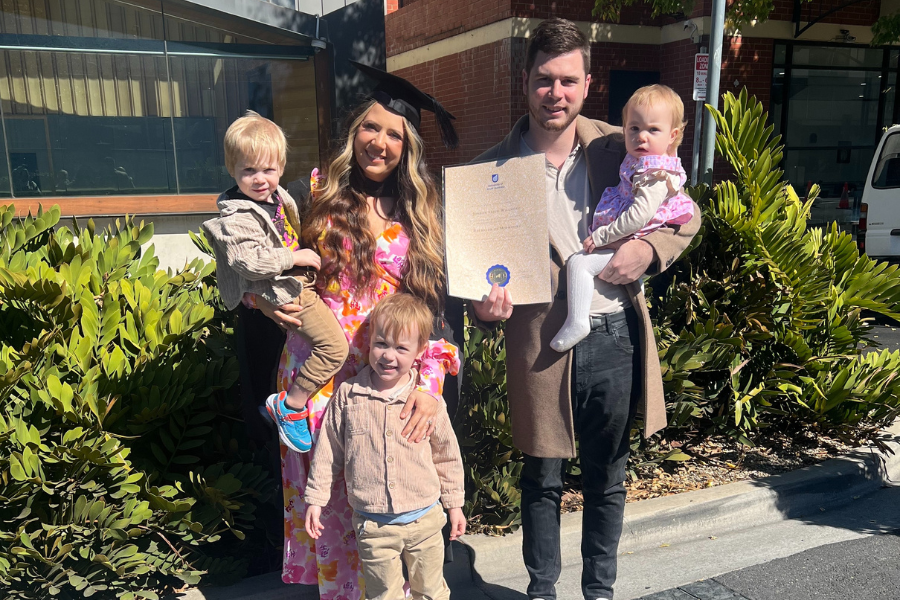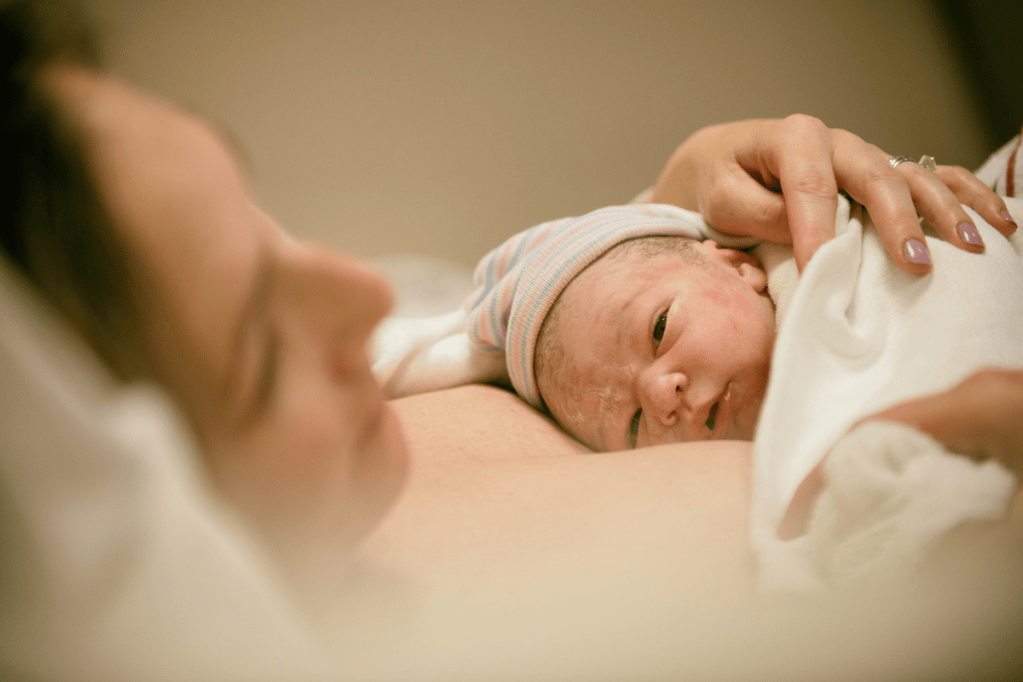An SA midwife reveals the emotional highs, tough challenges, and surprising rewards of her job.
Jordan Willmott remembers exactly when she realised midwifery was the career for her. At just 16, she witnessed her aunt giving birth to her cousin – an experience that might unnerve some teenagers, but not Jordan.
“I loved it,” she says. “I already knew I wanted to care for other people as a nurse or something, but after that, I just knew I wanted to do midwifery. I even did my research project on water birth when I was in high school.”
Jordan’s winding path to midwifery
Jordan initially missed out on studying midwifery straight after high school, so she became a nurse instead.
It wasn’t a compromise, just a different route towards her ultimate goal.
It was the “quite traumatic” birth of her first child that made her newly determined to make the switch from nurse to midwife – and this time, she was accepted into a post-graduate midwifery program.
After four intense years of juggling work, study and three young children, she finally stepped into the role she’d dreamed about since adolescence.

Perfect timing for midwives
Her timing couldn’t have been better. Right now South Australia needs more midwives – and that means career opportunities and state government support.
Initiatives like the Transition to Professional Practice Program (TPPP) welcomed a record 218 new nurses and midwives into permanent roles at the Northern Adelaide Local Health Network (NALHN) this year alone.
The TPPP is a structured, year-long program where experienced mentors guide newly-qualified nurses and midwives, making that tricky leap from university to professional practice a whole lot easier.
Nursing vs midwifery: What’s the difference?
Jordan explains that while nurses provide care across a broad spectrum of healthcare, midwifery has a much narrower but deeply meaningful focus.
“It’s a completely different job,” she says. “Nurses work in a variety of medical fields, from paediatrics to emergency to care of the elderly – it’s quite broad.”
“Midwifery, on the other hand, is solely focused on caring for women and babies from preconception to postnatal periods. It’s highly specialised.”
But Jordan is quick to correct a common misconception. “It’s not all about catching babies,” she says. “I rarely ever hold a baby. Most of the time that baby is skin-to-skin with their mum and bonding with them.”
What midwives actually do, she explains, goes deeper: “We’re empowering women to look after their own babies. Throughout pregnancy, we give them education to monitor safety issues, handle birth decisions confidently, and transition smoothly into motherhood.”

The power of relationships
As part of the Midwifery Group Practice (MGP) at NALHN, Jordan partners closely with women throughout their entire pregnancy journey.
“We follow women through pregnancy, birth, and see them up to four weeks postpartum,” she says. “We get to know them really well – not just their medical history but their social background, birth preferences, and what’s really important to them.”
This relationship-focused care yields powerful results. Women receiving this continuity of care experience better outcomes, including safer deliveries, more vaginal births, fewer epidurals, and fewer surgical interventions.
“Birth happens every day, and hearing a baby cry is special, but the impact on women is actually more meaningful to me.”
The human side of midwifery
Midwifery demands much more than clinical skills. Empathy, communication, and teamwork are key.
“You need to be able to ask questions and admit when you don’t know something,” Jordan says, highlighting the importance of continuous learning.
“Every day is different. You meet women from all kinds of backgrounds, and you need to advocate for them regardless of your own experiences or personal feelings, always prioritising their choices and voices.”

Managing emotional challenges
Midwifery isn’t always smiles and happy tears – there are tough days too. Jordan acknowledges these difficult moments, recounting cases where outcomes aren’t ideal.
“Sometimes bad things happen to good people,” she says. “When you’ve built relationships with these women, the emotional impact can be significant.”
Thankfully, NALHN has help on hand. “There’s always support from management and colleagues,” she says. “The midwives are very close-knit, providing essential support for new grads and each other.”
Balancing family and career
With three kids under six, Jordan admits people often questioned how she’d handle the demanding schedule.
“People asked, ‘How are you going to do 24-hour on-call shifts?’“ she recalls. “The answer is a very supportive partner who’s a confident father to our children.”
But there are times that make the juggle all worthwhile.
Among many births and countless hours of care, one moment stands out for Jordan.
“The first time I got a handwritten thank-you card from a woman was incredibly special,” she recalls. “She outlined the impact I’d had and said she’d love for me to care for her again – that’s when you realise you’re doing it right.”

Finding your path to midwifery
Jordan’s advice for anyone considering a career in midwifery is to understand what it really involves: “It’s not a job you choose just to catch babies – it’s so much more,” she says.
“It’s about working with women, for women, no matter what they’re going through or what the outcome is, always prioritising them.”
And if that sounds like a career you’re passionate about, persistence is key.
“If midwifery is something you really want, keep at it, step by step, even if it means starting in another healthcare role and working your way up. There are so many pathways into it now.”
For more information on how to explore your own path to becoming a midwife in South Australia, click here.

















